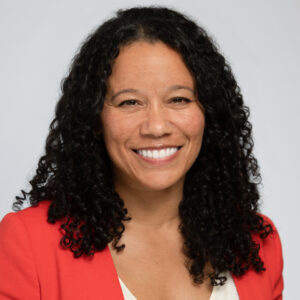In September 2020, 47 cities made commitments to new initiatives to support inclusive economic development and innovation at the Kauffman Mayor’s Conference on Entrepreneurship. NLC’s City Innovation Ecosystems program collects and tracks these commitments to showcase successes, identify best practices, and connect peer cities that can learn together. Here we share the story of one city’s work.
Rochester is no stranger to social/political or economic innovation. Located in north-west New York, Rochester has been a key foothold in civil rights movements such as abolition and women’s suffrage as well as the birthplace to iconic American corporations like Kodak and Xerox. While deindustrialization of the city has led to population and revenue loss, the city’s strong higher education and healthcare sectors have protected Rochester from contracting as severely as other rust belt cities. Nevertheless, a legacy of racial injustice and disinvestment has contributed to concentrated areas of unemployment and poverty, characteristics now compounded by the COVID-19 pandemic. Rochester is dedicated to overcoming this decline by increasing wealth within its communities, particularly by supporting entrepreneurs and locally owned businesses by people of color.
This effort reached a critical milestone when Mayor Lovely Warren created the Office of Community Wealth Building (OCWB) in 2018. Led by Director Dr. Lomax Campbell, the OCWB’s mission is to facilitate cross-sector collaboration to advance community wealth building initiatives and economic equality throughout Rochester. This effort was bolstered with the appointment of Dr. dt ogilvie, the Mayor’s Senior Advisor on Economic Development & Urban Entrepreneurship, in 2019.
Together, Mayor Warren, Dr. ogilvie, Dr. Campbell, and others have been securing funding, leveraging technology, and engaging with the community to build a new entrepreneurial ecosystem, When the city launched Nexus i90, Rochester’s first regional CRM, it finally had a comprehensive picture of its entrepreneurs and what they needed. What they found, however, was a glaring gap in support for small businesses, informal entrepreneurs, and aspiring entrepreneurs of color.

Addressing this gap is what led Rochester to partner with NLC and make two commitments to our 2020 City Innovation Ecosystems program. In the first commitment, Dr. Campbell joins technical expert Rising Tide Capital, and six other cities, to provide at least five entrepreneurs the resources to grow their businesses, get licensed, and transition to the formal economy by July 2021. As Dr. Campbell describes, ‘we know there are a lot of micro-enterprises and solopreneurs who are running businesses out of their homes, running them out of the local cafe and restaurant ecosystem, like the wealth advisors, event planners, photographers, graphic designers,’ or other workers like ‘plumbers and carpenters, where their work vehicle is their office.’ These businesses are precluded from financial support and technical assistance by virtue of structural barriers, such as grants that require a brick and mortar establishment. Through this commitment, Dr. Campbell aims to both identify and then direct entrepreneurs to resources that best fit their businesses. This is especially needed in a time of disruption when small businesses have been particularly impacted.
In the second commitment, Dr. ogilvie joins a cohort of seven cities to train aspiring entrepreneurs on the skills they need to cultivate successful businesses, with the goal of having three participate in the Kauffman Foundation’s FastTrac program by May 2021. She hopes to reach residents who have a business aspiration, but lack the support, networks, knowledge, or even the confidence to make that idea a reality. She believes one of the biggest reasons entrepreneurs fail is because they lack the knowledge to run a business successfully, even when they may have an excellent product or service. ‘When you start your own business, not only do you have to do marketing, but you also now have to do finance, accounting, supply chain, human resources, everything. You have to know how to manage your people, your money, your vendors.’
By training people on how to do all these things ahead of time, this commitment can help them avoid many of the mistakes typically made by new businesses owners. By giving them that leg up, Dr. ogilvie maintains, the path ahead for aspiring entrepreneurs is ‘de-risked’ and they are afforded an opportunity to be more successful than they otherwise might have been. “Their risk is not eliminated but it is made lower with the knowledge they will gain from the FastTrac program,” Dr. ogilvie said.
The goal of both commitments is to offer support to all business owners—from those who merely have an idea to those that have been in business for some time. This effort, however, cannot be done by the city, alone. Both Drs. ogilvie and Campbell feel these types of initiatives should live within the community, supported by an ecosystem of entrepreneurial support organizations. In fact, a critical part of this ecosystem is the entire community embracing its role in its success. After all, it is the entire community that benefits. Luckily, local non-profit and academic partners are already onboard, such as the Rochester Economic Development Corporation (REDCO) and Rochester Institute of Technology’s Center for Urban Entrepreneurship. Yet, community support can take many forms. For example, the Central Library of Rochester & Monroe County’s Business Insight Center has supplied pro bono services to fledgling businesses. As Dr. ogilvie says, “there are a lot of different pieces to this puzzle that can come together and make a difference, it’s up to us to get the word out, so that people understand that what they do or don’t do makes a difference.” No matter which path is taken to bring informal businesses into the formal economy, helping aspiring entrepreneurs on their journey, or helping existing entrepreneurs improve, we believe something truly unique is being created in Rochester.
Lessons from Rochester:
- Have a local philosophy
Identify what is important for and to your community and how you want your ecosystem to work. In Rochester, there is no reason businesses should be solely concentrated downtown; residents would benefit more if they were distributed throughout their neighborhoods. For example, where there are few homes with washers and dryers, there should be more laundromats nearby. Your philosophy should also be centered around the tenet that what you are doing, you are doing with the small business community, not for the small business community. Resident knowledge is essential, and this knowledge is not attainable without authentic relationships. To that end, there must be a fundamental belief that the people in your community are educable and capable. Not everyone may have formal education or traditional work history. Given the opportunity, however, it is surprising what people can do.
- Data vs. Evidence
Data is a crucial tool for local policymakers, but it should not be used at the exclusion of qualitative evidence and expert judgment. Legacy data systems may be prone to racial bias and lack important contextualizing information. Evidence, on the other hand, can be qualitative or quantitative, and it can come from organizational information systems and experiences, stakeholder preferences, expert judgement, or evaluated literature. Evidence is therefore a broader catchment from which to generate a decision. Rochester is therefore exploring evidence-based decision-making practices such as character-based lending and patient capital. By looking at factors such as work histories and community activities, they are exploring new ways in which they can help their residents.
- Spend wisely
According to Drs. ogilvie and Campbell, money is not the biggest constraint for many of Rochester’s entrepreneurs, knowledge is. That is why it is integral to train business owners accordingly, so funds do not go to waste. Moreover, free is not always best. Rochester considers charging entrepreneurs a small fee — based on a sliding scale according to means — to access certain training and resources, when applicable. By having skin in the game, they believe the level of programmatic engagement amongst business recipients will be greater.
Lastly, policymakers should be wary of offering generous tax incentives to woo large corporations to their municipalities. There is increasing evidence that such incentives routinely fail to provide meaningful benefits to the community while neglecting small businesses and entrepreneurs that create the lion’s share of new jobs in America.









